Glory Wattle, Eumung
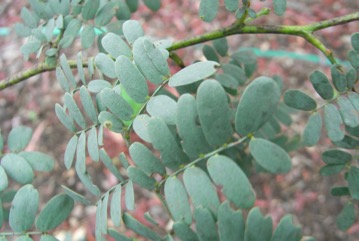
It occurs naturally in New South Wales and Queensland in Australia. (It occurs in the climatic range of 50-75 mm rainfall and the summer hot of 18°C and about 20 frosts in winter.) It prefers medium to heavy soils. It requires an open sunny position. It is drought and frost resistant. It cannot stand poor drainage. It suits hardiness zones 9-11.
Also known as:
Mudgee Wattle, Pilliga wattle
Edible Portion
- Flowers
Where does Glory Wattle grow?
Found in: Australia
Notes: There are about 1,350 Acacia species. Over 1,000 occur in Australia. Also as Mimosaceae.
Growing Glory Wattle, Eumung
Cultivation: It is grown from seed. The seed need treatment to break the hard seed coat. Normally this is by putting the seeds in very hot water and letting the water cool down overnight then planting the seeds immediately. It can be grown from cuttings but they are fairly difficult to start to grow.
Edible Uses: The flowers are stripped from their stems and roasted and eaten. They can be steeped in brandy and sugar, coated with batter and deep fried.
Nutrition Info
per 100g edible portion| Edible Part | Energy (kcal) | Protein (g) | Iron (mg) | Vitamin A (ug) | Vitamin c (mg) | Zinc (mg) | % Water |
|---|---|---|---|---|---|---|---|
| Flowers | - | - | - | - | - | - |
Glory Wattle, Eumung Photos

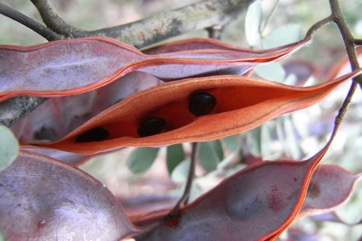
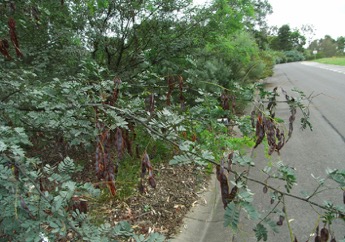
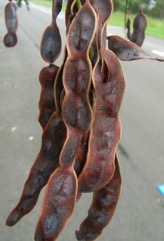
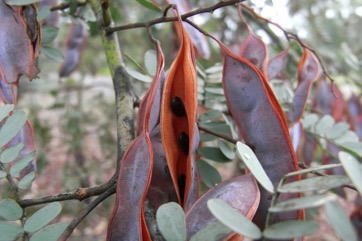
References
Bodkin, F., 1991, Encyclopedia Botanica. Cornstalk publishing, p 33
Cribb, A.B. & J.W., 1976, Wild Food in Australia, Fontana. p 162
Cundall, P., (ed.), 2004, Gardening Australia: flora: the gardener's bible. ABC Books. p 79
Elliot, W.R., & Jones, D.L., 1982, Encyclopedia of Australian Plants suitable for cultivation. Vol 2. Lothian. p 116
Etherington, K., & Imwold, D., (Eds), 2001, Botanica's Trees & Shrubs. The illustrated A-Z of over 8500 trees and shrubs. Random House, Australia. p 56
Facciola, S., 1998, Cornucopia 2: a Source Book of Edible Plants. Kampong Publications, p 151
Greig, D., 1996, Flowering Natives for Home Gardens. Angus & Robertson. p 40
Hall, N. et al, 1972, The Use of Trees and Shrubs in the Dry Country of Australia, AGPS, Canberra. p 352
Lazarides, M. & Hince, B., 1993, Handbook of Economic Plants of Australia, CSIRO. p 6
London J. Bot. 1:383. 1842
Lord, E.E., & Willis, J.H., 1999, Shrubs and Trees for Australian gardens. Lothian. p 42
Steenbeeke, Greg as part of the Plants Directory project. List of plant species from northern NSW that may be used as food plants p 1